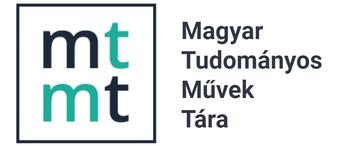The right to water as a social fundamental right
Abstract
In our study we would primarily like to introduce the interpretation of the European Pillar of Social Rights
(hereinafter ‘the Social Pillar’). Article 20 of the Social Pillar deals with the right to access basic services.
Basic services include the right to water and sanitation. The quoted article of the Pillar highlights that people in
need should be supported in the access of these services. The Social Pillar defines the access right in the framework
of social protection and social inclusion. In our opinion, this aligns a new interpretation of the right to water
nearby the earlier ones which recognises the right to water not just as a fundamental right, but a social
fundamental right as well. The characteristic of social fundamental rights is that they are not included in the
orders of the ius cogens, but they protect so essential things that are connected closely to the right to life and to
subsistence in general. This statement can be valid to the definition of right to water. If we analyse the classical
social rights more precisely, we will have similar conclusions. This interpretation is reflected by Article XX of the
Fundamental Law as well. The access to drinking water is highlighted as an important element of the right to
physical and mental health. We can see that this element itself is not enforceable, but it also connects to the right to
physical and mental health, and indirectly to the right to social security and the right to life. Drinking water is a
very important matter from the aspect of human life.
References
biztos-helyettes Közös Jelentése az AJB-5527/2013 számú ügyben.
2. Az alapvető jogok biztosa és a Magyarországon élő nemzetiségek jogainak
védelmét ellátó biztoshelyettes közös jelentése a Miskolci Önkormányzati
Rendészet által koordinált közös ellenőrzési gyakorlatnak, a helyi lakásrendelet és a
Miskolc környéki települések rendeletei módosításának, valamint a helyi
önkormányzat lakhatási feltételeket érintő egyéb intézkedéseinek vizsgálatáról az
AJB-1474/2014. számú ügyben.
3. Az alapvető jogok biztosának Jelentése az AJB-858/2017. számú ügyben.
4. COM(2017) 251 final Proposal for an Interinstitutional Proclamation on the
European Pillar of Social Rights Brussels, 26.4.2017.
5. COM(2017) 251 final Proposal for an Interinstitutional Proclamation on the
European Pillar of Social Rights Brussels, 26.4.2017.
6. Conclusions of the Committee for the Recurrent Discussion on Social Protection,
International Labour Conference, 100th Session, 2011 (Geneva)
1. Dr. Téglásiné Dr. Kovács J (2017) Az élelemhez való jog társadalmi igénye és
alkotmányjogi dogmatikája, PhD értekezés, Budapest,
https://jak.ppke.hu/uploads/articles/12332/file/Kovacs_Julcsi_dolgozatk.pdf
[16.10.2018]
7. European Parliament resolution of 19 January 2017 on a European Pillar of Social
Rights (2016/2095(INI)).
8. Gyulavári T & Kádár A M (2009) A magyar antidiszkriminációs jog vázlata, Bíbor
Kiadó, Miskolc.
9. Halász I ed. (2018) Alkotmányjog, Dialóg Campus Kiadó, Budapest.
10. Hendrickx F (2018) European Labour Law and the Millenium Shift: From Post to
(Social) Pillar, in: Frank Hendrickx – Valerio de Stefano ed., Game Changers in
Labour Law. Shaping the Future of Work. Bulletin of Comparative Labour Relations – 100,
Kluwer Law International BV, Netherlands
11. Horváth M T, Bartha I & Szilágyi J E (2018) Hó és sár: a víz, mint érték vagy
érdek. Képzelt beszélgetés a víz jogalanyisága felvetésének ürügyén, Közjogi Szemle
XI(3), pp.14–19.
12. ILO 2012., Proposal for Social Protection Floor (N. 202).
13. Jakab N (2016) Az egyenlő bánásmód nemzetközi, európai és magyar összefüggései, Miskolc:
Bíbor Kiadó.
14. Jakab N & Szekeres B (2017) A munkajogi védelmi szabályozás múltja és jelene,
in: Mélypataki G, szerk., A szociális jog aktuális kérdései Magyarországon és az Európai
Unióban. pp. 55–69.
15. Jakab N & Szekeres B (2015) A munkavégzési viszonyok változásai és az arra
adott válaszok, Studia Iurisprudentiae Doctorandorum Miskolciensum-Miskolci
Doktoranduszok Jogtudományi Tanulmányai, Tom. 16., pp. 141–159.
16. Joint statement of the social partners of 24 March 2017.
17. Kardos G (1996) A szociális jogok jogi kikényszeríthetőségének lehetőségei, Esély
(6), pp. 21-32.
18. Kovács P (2011) Nemzetközi közjog, Osiris Kiadó, Budapest.
19. Környei Á (2011) Emberi jogok a nemzetközi kapcsolatokban, Egyetemi jegyzet,
Piliscsaba.
20. Mehta L & Madsen B la C (2005) Is the WTO after your water? The General
Agreement on Trade in Services (GATS) and poor people’s right to water, Natural
Resources Forum 29(2), pp. 154–164.
21. Mélypataki G(2017) A szociálpolitikát megalapozó tényezők és értékek, in Jakab
N, Mélypataki G & Szekeres B, A szociálpolitika jogi alapjai a XXI. század társadalmi
kihívásainak tükrében, Bíbor Kiadó, Miskolc.
22. Morten Haugen H (2007) The Nature of Social Human Rights Treaties and
Standard-Setting WTO Treaties: A Question of Hierarchy?, in: Nordic Journal of
International Law 76, pp. 435–464.
23. Pap Sz I (2018) 100 ezerre emelkedik az ápolásra szoruló gyermekek után járó ápolási díj,
https://merce.hu/2018/10/11/100-ezerre-emelkedik-a-gyermekek-apolasi-dijade-
mi-lesz-ha-felnonek/ [28.10.2018]
24. Proposal for a Council Recommendation on access to social protection for
workers and the self-employed, COM(2018) 132final.
25. Raisz A & Szilágyi J E (2012) Az agrárjog és kapcsolódó területeinek
(környezetjog, vízjognak, szociális jognak, adójognak) fejlődése az Európai
Unióban, a nemzetállamokban és a WTO-ban - Development of agricultural law
and related fields (environmental law, water law, social law, tax law) in the EU,
countries and in the WTO, Agrár- és Környezetjog 7(12), pp. 107–148.
26. Raisz A (2006) Az emberi jogok új kihívások előtt – avagy a globalizáció egyes
kérdései, különös tekintettel a WTO-ra, Collega 2–3, pp. 238–241.
27. Raisz A (2010) Az emberi jogok fejlődése az Emberi Jogok Európai és Amerikaközi
Bíróságának kölcsönhatásában, Novotni Alapítvány, Miskolc.
28. Raisz A (2012) A Constitution’s Environment, Environment in the
Constitution, Est Europa- La Revue Special Edition(1), pp. 37–70.
29. Raisz A (2012a): A vízhez való jog egyes aktuális kérdéseiről, in: Csák Cs, ed.,
Jogtudományi tanulmányok a fenntartható természeti erőforrások témakörében, Miskolci
Egyetem, Miskolc, pp. 151–159.
30. Raisz A (2012b): Magyarország felszín alatti vizei a nemzetközi jog újabb
megközelítésében – Kincs, ami nincs?, in: Raisz A, ed., A nemzetközi környezetjog
aktuális kihívása, Miskolci Egyetem Kiadó, Miskolc, pp. 149–160.
31. Raisz A (2012c): A felszín alatti vizek határon átnyúló szennyezésére vonatkozó
nemzetközi szabályozás, in: Publicationes Universitatis Miskolcinensis Sectio Juridica et
Politica, Tomus XXX/2, pp. 371–382.
32. Raisz, A. & Szilágyi J E (2017) Cross border issues of the Hungarian water
resources. Rivista Quadrimestral di Diritto Dell’Ambiente 7(1), pp.73–98.
33. Social protection floor for a fair and inclusive globalization, Report of the
Advisory Group chaired by Michelle Bachelet, Convened by the ILO with the
collaboration of the WHO, Geneva, International Labour Organization 2011.
34. Spiegler T (2015) A vízhez való hozzáférés jogának megjelenése a helyi
jogalkotásban, Kodifikáció 4 (2), pp. 48–54.
35. Szalai András & Erdős Csaba (2018) Alkotmánytani és jogi alapismeretek, Dialóg
Campus, Budapest.
36. Százezreket tart teljes bizonytalanságban a kúttörvénykáosz, 2018,
https://hvg.hu/kkv/20181025_Betarthatatlan_a_kuttorveny [30.10.2018]
37. Szekeres B (2018a) A változó munkavégzés megjelenése és megítélése a bírói gyakorlatban,
Miskolci Jogi Szemle 13(1), pp. 128–144.
38. Szekeres B (2018b) Munkajogon innen - munkaviszonyon túl: A gazdaságilag függő
önfoglalkoztatás és annak munkajogi védelme, PhD Disszertáció, Miskolc, doi:
10.14750/ME.2018.017.
39. Szekeres B (2018) A foglalkoztatási jogviszonyok átalakulása, a jogalkalmazás
(és jogalkotás) előtt álló kihívások, in: Bankó Z, Berke Gy & Tálné Molnár E,
ed., Quid Juris? Ünnepi kötet a Munkaügyi Bírák Országos Egyesülete megalakulásának
20. évfordulójára. pp. 439–450.
40. Szilágyi J E (2013) Vízjog – Aktuális kihívások a vizek jogi szabályozásában, Miskolci
Egyetem Kiadó, Miskolc.
41. Szilágyi J E (2015) A vízjogi szabályozási csomópontok továbbfejlesztésének
lehetőségei, Pro Futuro 5(2), pp. 38–54.
42. Szilágyi J E (2015a) Vízhez való jog – ábránd vagy immáron valóság? Igényből az
alapvető emberi jogként elismerés útján, Közjavak 1(1).
43. Szilágyi J E (2015b) Vízhez való jog – ábránd vagy immáron valóság?, II. Közjavak
1(1), pp. 41–43.
44. Szilágyi J E (2018) Vízszemléletű kormányzás – vízpolitika – vízjog, Miskolci Egyetemi
Kiadó, Miskolc.
45. The Bratislava Declaration of 16 September 2016.
46. The Rome Declaration of 25 March 2017.
47. Thielbörger P (2014) The Right(s) to Water, The Multi-Level Governance of a Unique
Human Right, Springer-Verlag Berlin Heidelberg.
48. Tóth H (2013) Alapkérdések, in: Tóth H, ed., Szociális jog, Miskolci Egyetem
Kiadó, Miskolc.
49. Tóth Zs (2016) Települési támogatás, in: Hoffmann I & Mattenheim G, ed.,
Nagykommentár a szociális törvényhez, Wolters Kluwer, Budapest.
50. United Nations Human Settlements Programme. 2010. State of the world’s cities
2010–11: Bridging the urban divide (London, Earthscan).
51. Vallasek M (2018) Román társadalombiztosítási jog, Forum Iuris, Kolozsvár.
52. WHO, World Health Statistics (Geneva) 2010.












